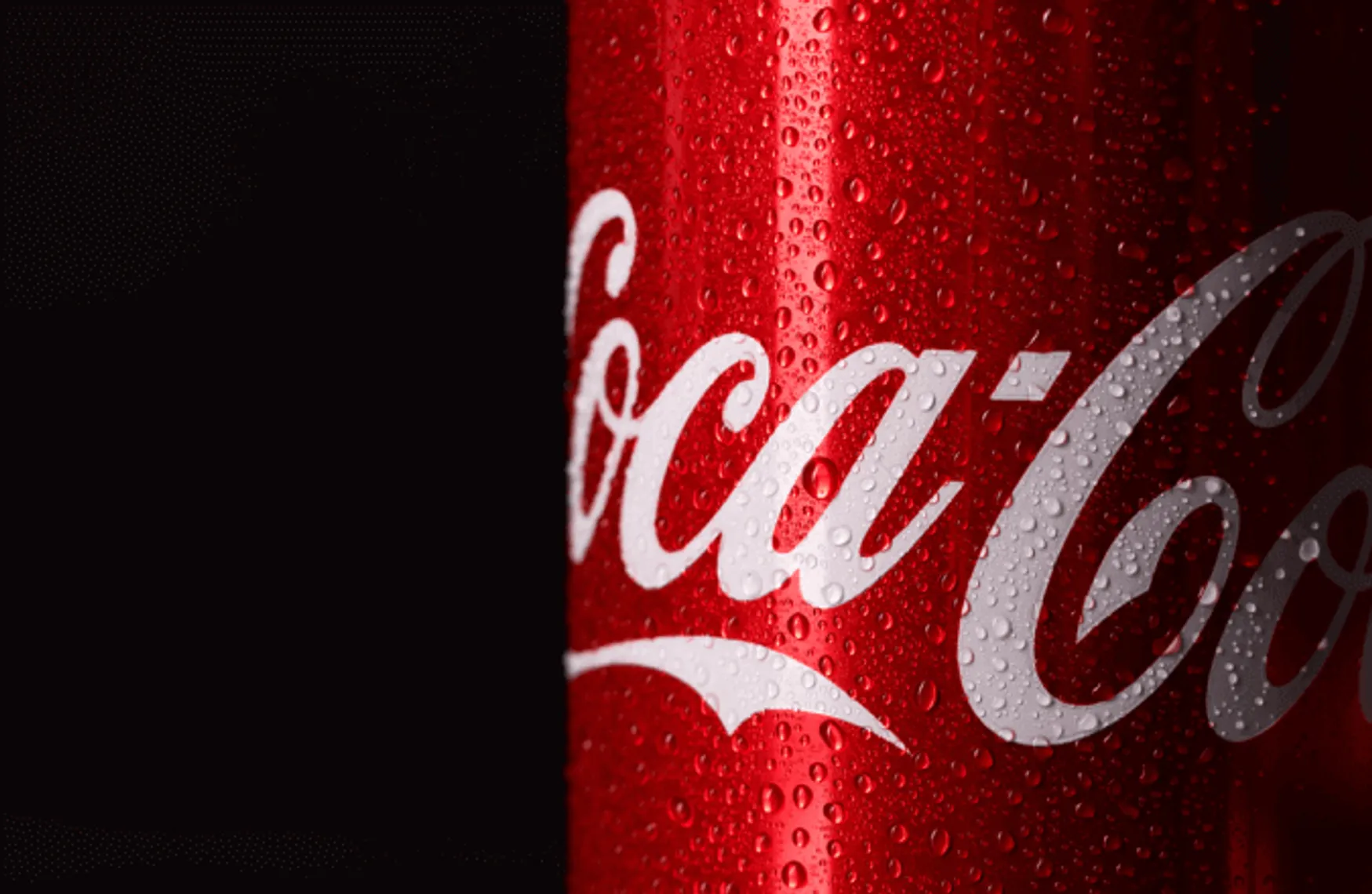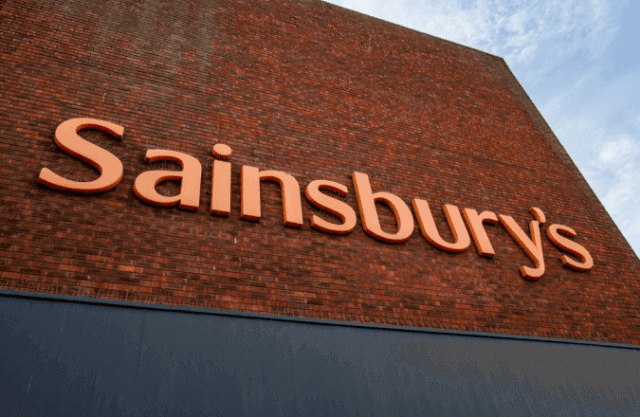How to trade Coca-Cola stock

Learn all about Coca-Cola stock, including the history of the Coca-Cola Company’s stock price, how many stock splits Coca-Cola has had, and how to trade Coca-Cola stock with Capital.com.
What is the Coca-Cola Company and why is it important to traders?
The Coca-Cola Company is a multinational beverage company that sells products in over 200 countries and territories.
Coca-Cola is a publicly traded company listed on the New York Stock Exchange (NYSE) with the ticker symbol ‘KO’. As for its inclusion in the major US stock indices, Coca-Cola stock is a component of the Dow Jones Industrial Average (DJIA) and the S&P 500. As of the start of May 2024, Coca-Cola had a market cap of around $268bn.
Coca-Cola is a liquid stock, increasing the likelihood of your trades being executed at your desired price. That said, it’s important to note that, as with any shares, Coca-Cola can experience volatility that can lead to losses, especially in light of earnings results or other company news.
However, Coca-Cola stock’s blue-chip status has meant that, historically, its performance has been fairly resilient during economic downturns, unlike many other less established consumer stocks.
History of the Coca-Cola Company’s stock price
Coca-Cola went public in 1919, issuing 40,000 shares of common stock at $40 per share.
This dipped dramatically in 1920 to just $19.50 a share, reflecting the dramatic socioeconomic changes happening at the time. This volatility continued throughout the 1920s and 1930s, with rises from $80 to ~$150 between 1924 and 1925, and record highs of around $170 in 1926.
This volatility – and momentum – continued through the 30s and 40s, with a notable high of $182 in 1947, perhaps thanks to the post-war recovery. It’s also worth noting the 4:1 stock split that occurred in 1935, shifting the stock price from ~$160 in 1934 to ~$90 in 1935. Over the years, Coca-Cola implemented several stock splits to make its shares more accessible to a wider range of investors. Stock splits increase the number of outstanding shares while reducing the share price proportionally, allowing investors to buy more shares at a lower per-share cost.
The 1950s and 1960s were a relatively stable time for Coca-Cola stock price, with highs of $150 in 1959, and lows of ~$80 in 1960 following the 3:1 stock split. Another split in 1965 – this time, a 2:1 split – shifted the price from ~$140 in 1964 to $86 in 1965. Another 2:1 split in 1968 shifted the price from ~$130 in 1967 to ~$70 in 1968.
The 70s and 80s saw highs of around $150 in 1972, and lows of around $33 in 1980. Another 2:1 split in 1977 shifted the price from $79 in ‘76 to just $37.25 in ‘77. A notable event in the stock’s history around this time was the ‘new coke’ controversy in 1985, in which the brand introduced a new formula, only to announce the return of the original formula seventy-nine days later. It’s likely that this news, alongside a 3:1 split in 1986 triggered the stock price shift from ~$85 in 1985 to ~$37 in 1986.
More stock splits through the late ‘80s and ‘90s shook KO’s stability, but on the whole, after the 2:1 split in ‘96, KO remained relatively stable at around $50 until the next split in 2012. There were highs of ~$70 in 2011 and lows of ~$40 in 2005. Although prices dropped to ~$36 after the 2012 2:1 split, they’ve remained relatively stable ever since.
Performance of the Coca-Cola stock in recent years
Relative stability continued until the COVID-19 pandemic, which put a dent in company sales and triggered a temporary dip in stock prices. Specifically, KO stock closed at $55.35 in 2019 and $54.84 in 2020. It picked back up again in 2021, closing at $59.21 (year end). In 2022, it closed at $63.61 (year end), and has been relatively stable ever since.
Past performance is not a reliable indicator of future results.
What factors might affect Coca-Cola Company stock price?
Among the main factors that could affect the Coca-Cola Company’s stock price, include:
Economic conditions
During periods of economic growth, consumers may have more disposable income to spend on FMCG goods like those that Coca-Cola offer. Revenue boosts can often positively impact the company’s share price. Conversely, economic downturns can lead to decreased consumer spending, potentially lowering company sales and, in turn, (potentially) the share price too.
Industry competition
Coca-Cola’s main competitor is PepsiCo, along with smaller beverage companies. Product innovations, pricing strategies, marketing campaigns and other initiatives by competitors can impact Coca-Cola’s market share and, in turn, its stock price.
Evolving regulations
Changes in regulations related to health, environment, or trade can affect Coca-Cola’s global operations. Take for example, new taxes on sugary drinks, stricter environmental laws related to packaging, or changes in international trade agreements. All of these can directly or indirectly impact Coca-Cola's profitability, and in turn, the Coca-Cola stock price.
Currency fluctuations
Changes in foreign exchange rates can significantly affect Coca-Cola’s earnings reported in US dollars, in turn (potentially) influencing its share price.
Consumer preferences
As consumer preferences evolve, Coca-Cola, like any FMCG company, must rapidly adapt to keep up. Product innovation is critical for maintaining Coca-Cola’s market position and, related to this, Coca-Cola Company’s stock price.
Company earnings
Quarterly earnings reports from Coca-Cola can often play a critical role in influencing trader sentiment and Coca-Cola Company’s stock price. Positive revenue growth can often lead to Coca-Cola company stock price increases, while any financial setbacks can cause declines.
Market sentiment
General market sentiment or even specific market news and analysis of the company such as mergers or significant new contracts, can also impact Coca-Cola Company’s stock price. While positive news may boost traders’ confidence and drive up Coca-Cola Company’s stock price, negative news can have the opposite effect.
What are the Coca-Cola stock trading hours?
In the UK, you can trade CFDs on Coca-Cola stock during the standard trading hours for US shares. CFDs are high-risk, complex instruments.
These hours typically align with the New York Stock Exchange (NYSE) trading times due to Coca-Cola being a US-based company. The NYSE operates from 2.30pm to 9pm UK time – but note that these hours may change depending on whether it is summer or winter according to daylight savings.
If you choose to trade CFDs on Coca-Cola stock, you can follow our Coca-Cola Company stock price chart live in US dollars.
Find out more about the world stock market trading hours.
How to trade Coca-Cola stock
If you would like to take a position on Coca-Cola stock, you have two options: to invest in Coca-Cola stocks, or trade Coca-Cola stocks. So, let’s look at the difference between investing in shares vs trading shares.
Firstly, you can invest in the shares by purchasing them outright from a stockbroker. This means you will own physical shares in Coca-Cola Company, usually as a long-term investment.
Alternatively, you can trade a CFD on KO stock. This means you speculate on the price movement of the underlying asset without actually owning it.
Find out more about CFD trading.
A key difference between investing in Coca-Cola stocks and trading on them relates to leverage. Unlike investing, CFDs are traded on margin, so you can get greater exposure than your initial deposit. In other words, this gives you exposure to KO stock price movements without you having to purchase the shares outright.
Remember, this can magnify your gains – but also your losses. That’s why it’s very important to use risk-management tools when trading CFDs.
You can learn how to trade shares in our comprehensive guide to shares trading.
Why trade Coca-Cola stock with Capital.com?
Trading on the price of Coca-Cola stock with CFDs on Capital.com means you’ll get access to an easy-to-use platform, 24/7 support, fair and transparent pricing, and award-winning educational content to help enhance your trading knowledge.* You’ll also be able to trade on elite third-party software such as TradingView and MT4, and refine your strategies with our risk-free demo account.
On top of this, we offer extended hours on key US stocks like Coca-Cola stock, so you can trade on any KO stock price movements around earnings announcements that usually happen after the market closes.
Please note that trading via financial derivatives like CFDs or spread betting is a high-risk, complex form of trading.
Need more support? Try our step-by-step stocks course to guide you through the basics to the advanced concepts.
*Awarded best-in-class for education at ForexBrokers.com’s 2024 Annual Awards
FAQs
Is Coca-Cola a dividend stock?
Yes, Coca-Cola is widely known as a dividend stock, with a long-standing reputation for delivering consistent, reliable dividend payments to its shareholders. Coca-Cola is also recognised as a ‘dividend aristocrat’, having increased its annual dividend payments for over 50 consecutive years.
Is Coca-Cola a good stock to buy or trade?
KO is a mature, liquid, blue-chip stock spanning the international markets. It’s been a consistently popular stock over the past century. Saying this, for many, Coca-Cola will be more of a long-term play. One of the reasons for this is down to Coca-Cola stock’s high dividend yield.
Is Coca-Cola on the stock market?
Yes, Coca-Cola is listed on the New York Stock Exchange (NYSE) under the ticker symbol ‘KO’.
Is Coca-Cola publicly traded?
Yes, Coca-Cola stock is a publicly traded company, and its shares are available for purchase on the New York Stock Exchange. On Capital.com, you can trade CFDs on Coca-Cola Company’s stock price. CFDs are high-risk, complex financial instruments.
What type of stock is Coca-Cola?
Coca-Cola stock is a common stock, categorised as a large-cap, dividend-paying stock in the consumer goods sector, specifically in the beverage industry.
Visit our other complete trading guides

How to trade Disney shares
